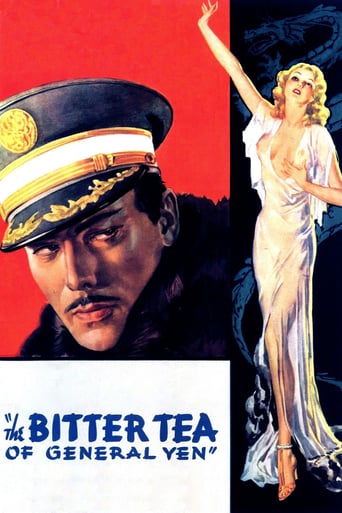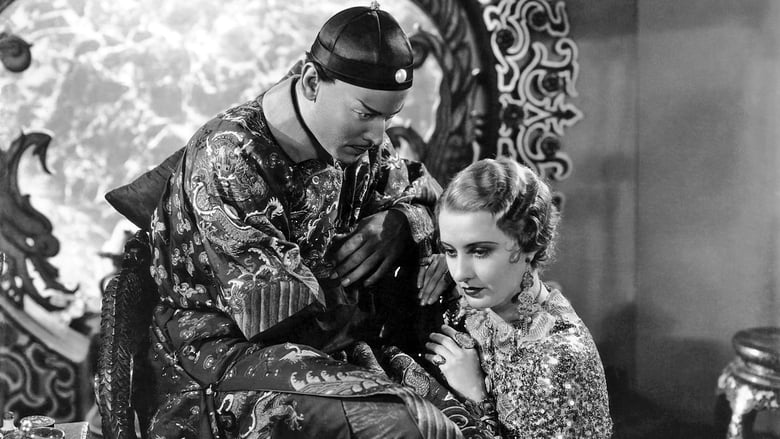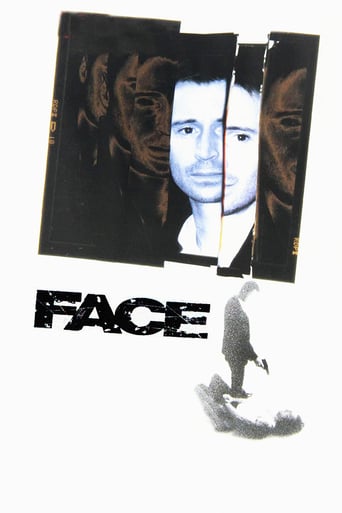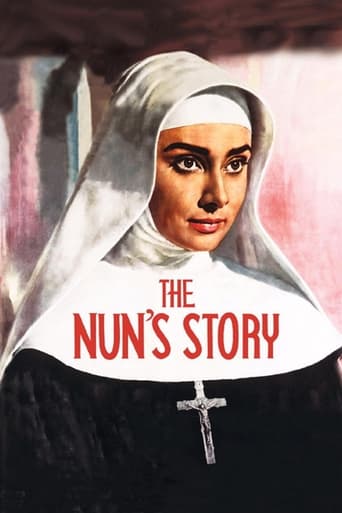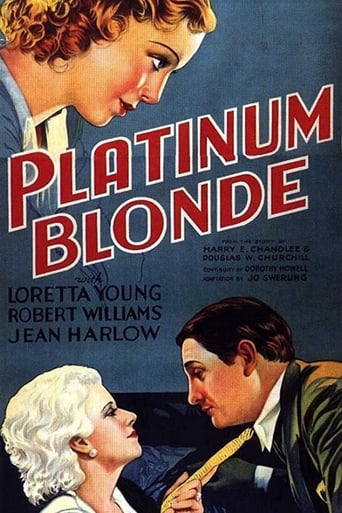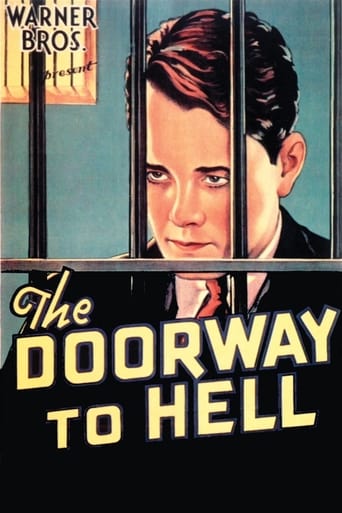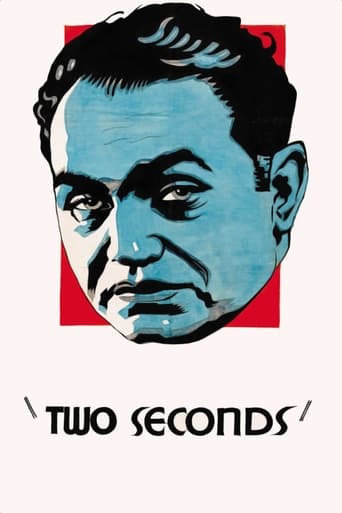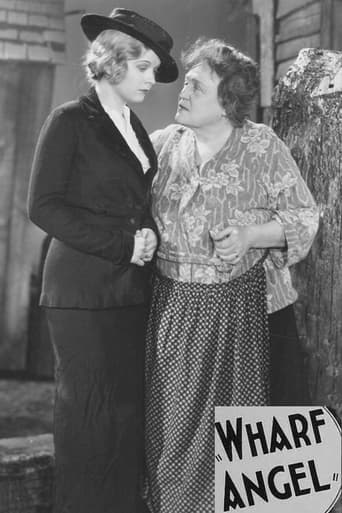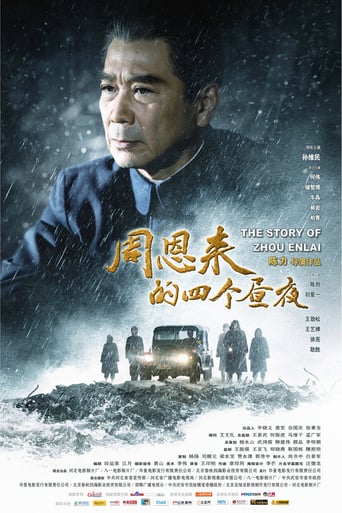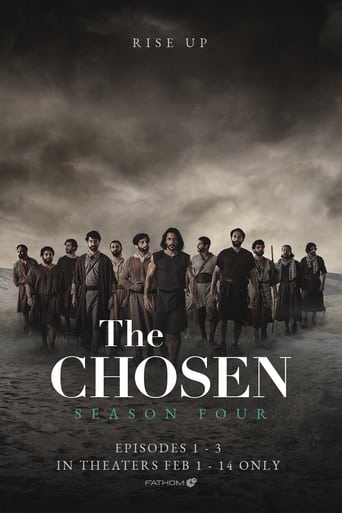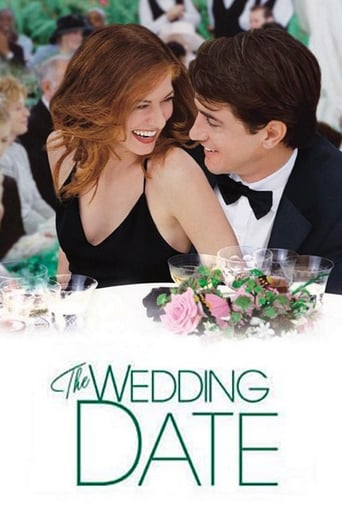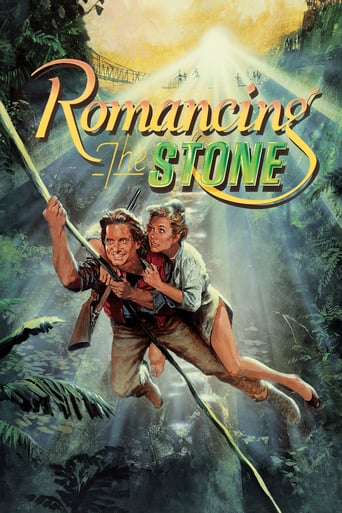The Bitter Tea of General Yen (1933)
An American missionary is gradually seduced by a courtly warlord holding her in Shanghai.
Watch Trailer
Free Trial Channels
Cast


Similar titles
Reviews
In other words,this film is a surreal ride.
I enjoyed watching this film and would recommend other to give it a try , (as I am) but this movie, although enjoyable to watch due to the better than average acting fails to add anything new to its storyline that is all too familiar to these types of movies.
It's simply great fun, a winsome film and an occasionally over-the-top luxury fantasy that never flags.
Yes, absolutely, there is fun to be had, as well as many, many things to go boom, all amid an atmospheric urban jungle.
. . . says Megan Davis, some sort of United Nations High Commissioner, about 59 minutes, 20 seconds into THE BITTER TEA OF GENERAL YEN. Her assistant, Mr. Jones, has just pegged China's 1932 population at about 500 million people. No rat census figures are provided here, perhaps because THE BITTER TEA OF GENERAL YEN depicts a densely disordered den of disastrously deplorable, devious, and depraved denizens posing a ticking time bomb challenge to Western Civilization and Human Culture, aka Humanity. Though Columbia Pictures tried to warn our USA Homeland of the Chinese Menace at a Historic Juncture when the problem could have been handled by a few thousand kegs of "BITTER TEA" (think the Kool-Aid vats at Jonestown), a series of Weak Presidents have allowed this Cess Pool to Fester. Breeding like rabbits, China's burgeoning head count is now A BILLION AND A HALF (again, that's just the Homo Sapiens, NOT the rodents!). No country should be permitted to have more people than our USA. This is only common sense. We cannot and MUST NOT allow ourselves to become outnumbered! (Even Gen. Yen thought he was having the last laugh, with American Megan clearly unaware of this First Principle of Military Defense.) Now, as Rocket "Man" Kim--China's rocking horsey stocking horse boy--threatens us daily, it's highly gratifying to know that we can rely upon Leader Trump to deal appropriately with the Chinese Peril ONCE AND FOR ALL. There's not enough Bitter Tea left in China to do the trick, but Leader Trump has bunkers full of nukes, and his fingers are hovering over The Button as I type!
Frank Capra made an artistic masterpiece in The Bitter Tea of General Yen, but it didn't make money. So a year later, with Columbia near bankruptcy, Capra made a smash hit, It Happened One Night and saved the studio. So Capra makes more hits, and some reviewers here act like he sold out. I wonder which films they saw?Actually, Bitter Tea foreshadows themes that we will see in most of Capra's films: the powerful vs. the powerless, money and how it corrupts, idealism and the obstacles to its realization. Capra was ahead of his time with many of his movies, often outraging the establishment. This was obvious in Mr. Smith Goes to Washington, but also in Meet John Doe, which features a remarkably Rupert Murdoch-like villain, and The State of the Union, which was 20 years ahead of The Candidate.Bitter Tea must also have been outrageously ahead of its time, offending Christians and Americans, not to mention Chinese. The cinematography by Joseph Walker is unusually beautiful and polished for 1933. But as he would work on most of Capra's movies, this does not make Bitter Tea exceptional, beyond that the print may have been better preserved than some. I find it strange that some would call this movie dated. The setting of 1930s civil war China is dated, but not the movie. I could imagine this movie remade by Steven Spielberg today with modern equipment, and he wouldn't need to change much.But what is so remarkable about Bitter Tea is the literary richness of the story. What we have here is the ideas of Nicolo Machiavelli in movie form. It is the story of the prince, who has power and ideals, but must also be prepared to wield naked power to achieve his goals. And it is the story of the naive unarmed prophet, who has ideals but no power, and no understanding of the worldly mechanisms for achieving those ideals. Those who have read and understood Machiavelli will understand this film.This is a must see film for fans of Frank Capra (I've seen 11 of his films). If you get this far, you might want to read Capra's autobiography, where he talks about the film. Spoiler alert:The result is that the naive missionary unintentionally wrecks the plans of the general, whom she learns too late might have accomplished great things.I love the ending. The Christian missionary vows she will never leave General Yen's side for the rest of his life. He promptly drinks poison. The ending, a suicide, was surely one reason this film wasn't the box office success Capra hoped for. I've seen many smart aleck critics say John Doe should have jumped on Christmas, and I've tried to imagine how this would have made Meet John Doe a better movie. Capra had already tried the suicide ending, and it was the right ending for Bitter Tea. But it would have been the wrong ending for Meet John Doe.
Though it dates from 1933 both director Capra and actress Stanwyck were veterans of the movies and had indeed already worked together notably on Miracle Woman, a thinly-veiled take on Aimee Semple MacPherson. This time the canvas is broader embracing racism, politics and miscegenation just for starters. Swedish Nils Asther was convincing as the eponymous Chinese warlord who more or less kidnaps Stanwyck who has ostensibly journeyed to China to marry her missionary fiancé. Much has been made of the erotic dream sequence which gives Stanwyck an opportunity to confront her sexual confusion - attraction/repulsion - regarding Yen. For the time the setting was remarkably authentic and we have to score it as a little-known/seen gem.
Frank Capra (billed with his middle initial R.) directed this bizarre tale for Columbia Pictures, possibly in a bid for career prestige but instead seeming somewhat out of his element. In strife-ridden Shanghai, American girl Barbara Stanwyck arrives to work as a missionary and marry her doctor-partner, but they are separated in the midst of the political chaos and she is kidnapped by an exotic Chinese General. At the heart of this story, a nutty one by Grace Zaring Stone with a screenplay from Edward E. Paramore Jr., is the trust that develops between the powerful, apathetic war-lord and his headstrong Christian captive--a trust which eventually backfires on the General when his confidante (with unknowing assistance from the lady) double-crosses him. Stanwyck dreams of being ravished by Nils Asther (who rescues her while dressed in American garb from his Oriental 'evil' side), but we don't perceive just what the General sees in this girl. Certainly Stanwyck is lovely, grounded, and sympathetic, however her character is often exasperating and illogical. Could this high-minded woman bring down an imperious Chinese General in the middle of a brutal civil war? When the General's men are blindsided and mowed down by opposing forces, he hardly seems to care. Ah, the follies of star-crossed romance! **1/2 from ****

